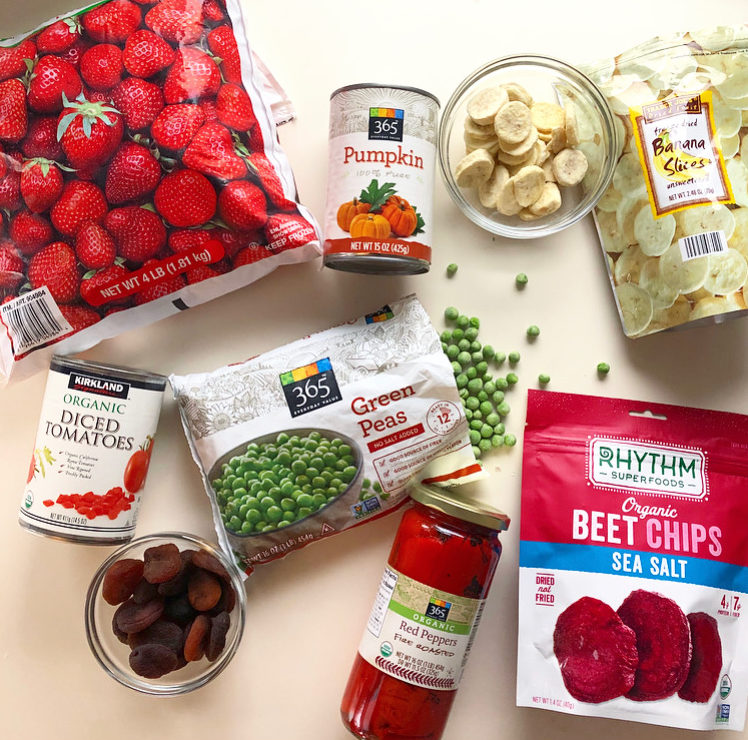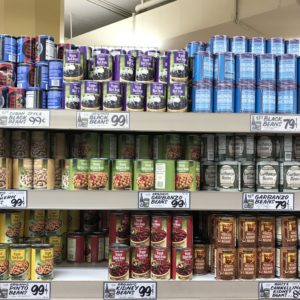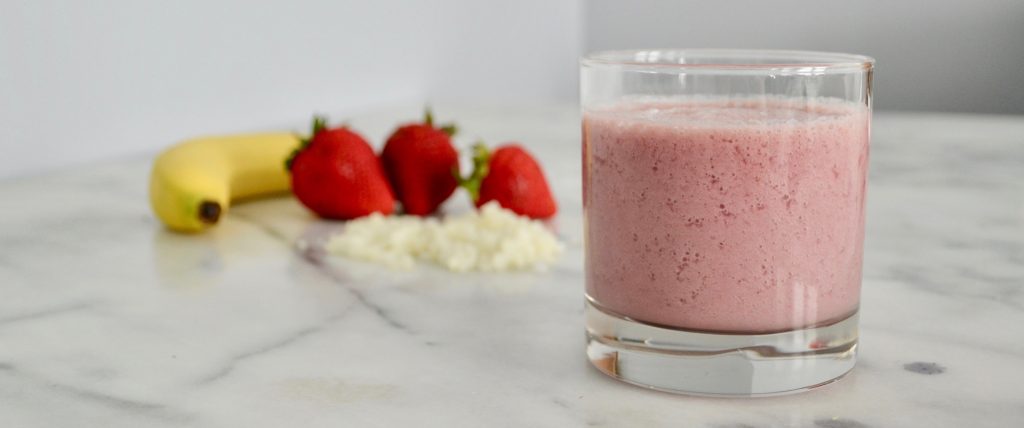Freeze Dried, Frozen or Canned–What’s the Best Alternative to Fresh?
When choosing snacks, we always recommend choosing fruits and vegetables over the various refined-carbohydrate crackers, cookies and salty snacks. Choosing nutrient-dense, fiber-filled fruits and veggies not only provides antioxidants, vitamins and minerals, but it also reduces consumption of other empty-calorie snacks, which provide little, if any, nutrition.
Fresh fruits and vegetables, eaten in their whole form, are great sources of nutrition. They are full of fiber and water and have fantastic texture, which require us to chew and fill us up resulting in lower calorie intake. However, they aren’t always in season. Choosing seasonal produce will always provide the biggest bang for your buck (literally!) as in-season produce contains the most vitamin and mineral content at the lowest price. Check out this guide for what is in season when!

So, what should you do when fresh fruits and veggies aren’t available or aren’t in season? Good news– you still have plenty of options! Follow along for FEED’s guide to freeze dried, frozen and canned produce:
Freeze Dried
Is it frozen or is it dried? Well, it’s kind of a combo. Freeze drying is a process where fresh or cooked food is rapidly frozen and placed in a vacuum. Cell structure, shape and color are all preserved through this process, and water is removed under low temperatures, which maintains the fiber content! Though there may not be exact same nutrient content as fresh fruits and vegetables, research shows most of the nutrients are preserved.
Why choose freeze dried?
Freeze dried foods maintain their original shape and much of the texture. They are amazingly portable and lightweight due to the water content being removed making them an ideal snack to throw in a diaper bag, purse or lunchbox. Also, freeze dried foods can be stored at room temperature without the risk of spoilage– yet another reason to stock up!
FEED’s Freeze Dried Favorites:
- Bare Snacks Carrot Chips – sweet and salty, this crunchy snack is great on its own or as a salad topper
- Rhythm Foods Fruits and Veggies – we’re big fans of the beet chips, but their fruit options are great for on the go too!
- Trader Joe’s Banana Slices – try with your favorite nut butter
Freeze dried fruit is also one of our must-have office snacks!
Frozen
Frozen produce is a convenient and cost-effective way to incorporate important vitamins and minerals in your diet year round. Frozen fruits and vegetables may even be more nutrient dense than fresh because they are frozen when nutrient quality is the highest!
Freezing fruits and vegetables at home is a great way to reduce food waste and give a second chance to produce that might otherwise go bad. We like to freeze extra tomato paste or sauce along with homemade pesto in ice cube trays so that they can be easily thawed and added to dinner in no time!
Ways to use frozen fruits and veggies:
- Add to your favorite smoothie! They contribute to the thickness and keep it cool without diluting the flavor. Try this FEED fave with frozen riced cauliflower– we promise you won’t even know it’s there.
- Top your morning meal. Frozen fruit is perfect for adding to overnight oats or make a simple topping for your stovetop oatmeal by cooking down frozen fruit with lemon zest and spices.
- Rethink your after-dinner treat. Our cocoa-dusted cherries are one of our clients’ favorite recipes!
Looking for more ways to cool down? Check out our healthy popsicle recipes and favorite frozen treats.
Canned
When it comes to fruits and vegetables, some canned versions do have nutrient losses during their initial processing. Water-soluble vitamins including vitamin C and the B vitamins show the greatest losses.

Another concern with canned produce is the addition of salt and/or sugar, which act as preservatives.
One favorite option in the canned goods aisle is beans. Be sure to rinse them to remove some of the sodium content, then add them to soups, sauces, pasta, or just serve as a quick protein-filled snack!
FEED’s Best Bean Recipes:
Because nutrient density can change with processing, cooking and storage, a diet with a wide variety of fresh, frozen, freeze dried and canned produce is ideal. Eat with the seasons, and when fresh produce isn’t available, know that there are other ways to get the vitamins, minerals and other nutrients that fruits and veggies add to the diet!
